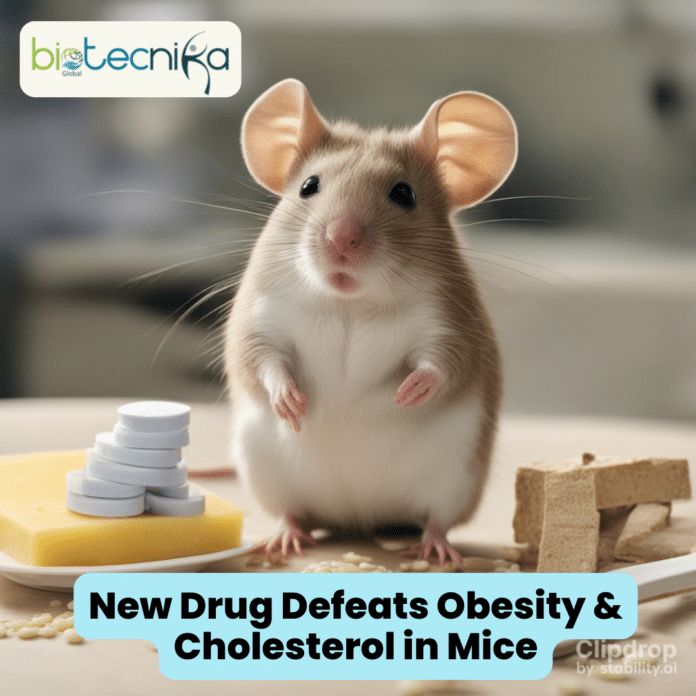New Drug Defeats Obesity & Cholesterol in Mice
In a groundbreaking study where a New Drug Defeats Obesity & Cholesterol in Mice, scientists have managed to combat obesity and related health issues in mice by using a new drug delivery method. This method involves a tiny carrier called a nanogel, which allows the drug to be delivered directly to the liver, reducing the risk of side effects.
The group of researchers responsible for this breakthrough envisions that this method could have a transformative impact on the treatment of various conditions, including fatty liver disease, type 2 diabetes, and high cholesterol in the future. It’s worth noting that a considerable number of individuals, approximately 100 million Americans, grapple with the health issues associated with obesity and related metabolic disorders. The linchpin of this groundbreaking approach centers on a synthetic thyroid hormone medication known as a thyromimetic. These hormones play a critical role in governing the liver’s metabolism. However, when taken in a standard manner, they can have side effects and reduced effectiveness.
To overcome these challenges, the scientists developed nanogels with negatively charged surfaces, which they could direct specifically to liver cells called hepatocytes. This precise targeting ensured that the drug was delivered to the liver, where it needed to act. The scientists encapsulated the thyromimetic drug, axitirome, within these negatively charged nanogels known as ANGs and then administered these to mice suffering from obesity. These mice had been on a high-sugar, high-fat, and high-cholesterol diet for an extended duration. Astonishingly, the mice subjected to this treatment not only shed the weight they had previously gained but also experienced a reduction in their cholesterol levels, along with a decline in harmful liver inflammation.
This improvement was attributed to the activation of the reverse cholesterol transport pathway, which helps lower cholesterol levels. While the exact mechanisms behind the weight loss are not fully understood yet, the researchers believe that increased fat oxidation and a boost in metabolic rate could be contributing factors. One significant aspect of this study was that the mice continued to have an appetite for their high-density food diet during the treatment. This contrasts with the experiences of humans using different weight loss drugs.
It’s crucial to emphasize that additional research is required to establish a connection between experiments conducted on mice and the possible applications of this treatment in humans. However, these findings hold promise for the development of drugs to address metabolic conditions like obesity, which is a significant public health concern.
Dr. S. Thai Thayumanavan, the lead researcher, has taken steps towards turning this discovery into a real-world solution by co-founding a startup company, Cyta Therapeutics. Their goal is to develop innovative drug delivery platforms that can precisely target specific areas of the body, making treatments more effective and with fewer side effects. This exciting research has been published in PNAS Nexus, bringing us one step closer to combating obesity and related health issues in humans through advanced drug delivery methods.






